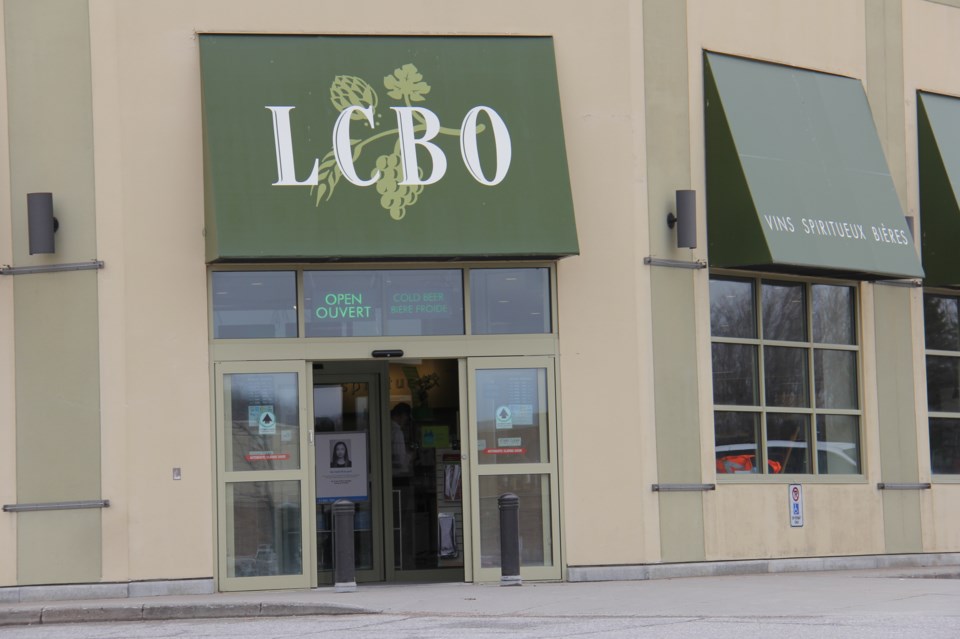A tentative deal the LCBO and the union representing its workers said they reached on Friday appeared to be on hold just hours later, with each side accusing the other of failing to get it to completion.
Some 10,000 LCBO workers have been on strike since July 5.
Early on Friday afternoon, the LCBO announced it reached an agreement with the Ontario Public Service Employees Union (OPSEU), the union representing its employees, that could see retail liquor stores reopen on Tuesday. OPSEU-represented LCBO workers would have to approve the deal before it’s ratified.
Hours later, OPSEU spokesperson Katie Arnup told journalists that the strike “continues” because the LCBO was “now refusing to sign (return to work) protocol necessary for workers to go back to work.”
Shortly after, the LCBO published a statement blaming the union for the 11th hour bargaining dispute.
“(OPSEU) have since introduced significant new monetary demands that should have been dealt with at the bargaining table,” said the LCBO in a statement on its website. “To introduce a new set of demands after reaching a tentative agreement amounts to bad faith bargaining.”
“LCBO expects to file an unfair labour practice in short order,” it added.
Soon after, the union’s president, JP Hornick, spoke to reporters, maintaining that a tentative agreement had been completed, only for the LCBO to not respond to what they described as uniform return-to-work protocols that OPSEU proposed.
“What we did was table a standard protocol that we have used to settle the past three strikes that we have seen in our union, and in each of those situations, we received a response from the employer, negotiated the terms and got the employees back to work in a safe and responsible manner,” Hornick said.
In its statement earlier in the day, the LCBO said it was “now working to prepare our people and operations to return to business as usual.”
“We look forward to welcoming our unionized employees back to work in service of Ontarians,” the Crown corporation’s statement from earlier on Friday said. “We recognize the disruption the strike caused for our employees, partners, and customers who rely on our services, and we thank everyone for their continued patience and understanding as we begin resuming regular operations.”
Finance Minister Peter Bethlenfalvy also said in a statement earlier in the day that he was “pleased” the two sides had reached a tentative deal to end the strike.
“This is a good deal for workers and welcome news for Ontarians,” Bethlenfalvy said. “We look forward to working together to deliver choice and convenience across Ontario.”
OPSEU hadn’t disclosed details of the larger tentative agreement with the LCBO by late Friday afternoon, saying it planned to wait to do so until it communicated them with members. While speaking to reporters late in the afternoon, Hornick said the union may still take that step in the evening.
A first for the LCBO
On July 4, the LCBO put forward an offer that included annual wage increases of around two per cent for three years, converting 400 casual employees to full-time and more benefits for part-time employees, according to a document posted on the crown corporation's website.
OPSEU took a different view. The proposal was "filled with attacks on our working conditions, wages that don’t come close to meeting inflation, and attempts to remove barriers to privatization in our contract," the union said in a July 8 update.
Earlier this week the Ford government announced it was moving up the date licensed grocery stores would be allowed to start selling ready-to-drink (RTDs) alcoholic beverages and large cases of beer.
Stores could sell these items as of this Thursday, nearly two weeks earlier than the originally planned Aug. 1 date.
RTDs were a major sticking point in the negotiations, with OPSEU wanting the government to cancel its plan to allow these beverages to be sold in more locations. The union argued that the expansion represented a huge threat to job security and the future of the provincial alcohol retailer.
“The workers have made it clear all along – Premier Ford’s alcohol everywhere plan directly threatened jobs and public revenues,” the union said on Friday. “And he forced this strike by fast-tracking it right in the middle of bargaining.”
RTD sales accounted for nearly $700 million of LCBO revenues in 2023, around nine per cent of total sales, according to the provincial agency's 2022-23 annual report. Spirits account for about 37 per cent of sales, wine 31 per cent, and beer about 20 per cent. "Specialty services" make up the remaining three per cent.
It's also the fastest-growing offering on LCBO shelves.
In fiscal year 2022-23, RTD sales grew by nearly seven per cent, or just over $40 million, according to the annual report.
RTD "has been one of the fastest growing and most popular product categories in recent years. Consumer preferences for these beverages have resulted in a shift away from some of the more established alcoholic drink types," the annual report said.
—With files from Aidan Chamandy




